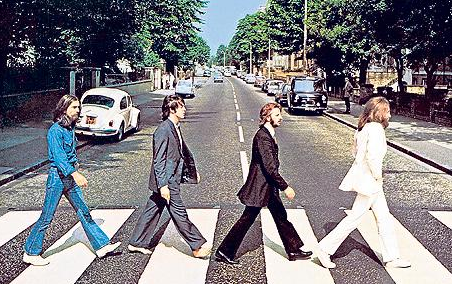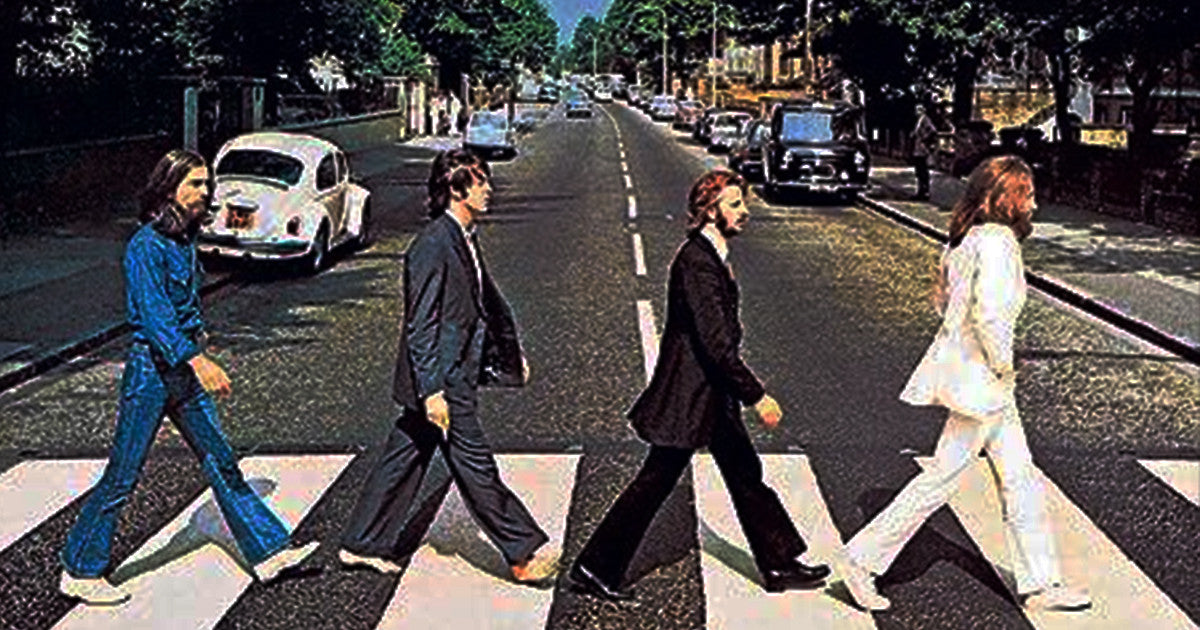I stumbled onto this article entitled “The Technical Constraints That Made Abbey Road So Good” written by Justin Lancy of The Atlantic thanks to a friend sharing it on Facebook. Said friend is a busy, well-known audio engineer in NashVegas, so I tend to inspect his posts and mentions with a careful eye.
Go ahead and read the piece; It’s thorough and informative. There’s a couple of really key points that I find many musicians/songwriters/engineers/producers can apply to their work. I know I’ve learned a thing or two from similar veteran pros in “The Biz,” but a couple of statements in this article apply directly to anyone who is active in every discipline of music.

1) “Every tool can have a place as part of an artistic palate. “Old is not good or bad,” [Kehew] said. “Question it. Try it. Listen. Buy weird bad gear and great quality gear—see what it does for you. I love Jon Brion's quote—‘I don't want to be Lo-Fi or Hi-Fi, I want to be ALL-Fi!’”
This is a great statement about gear and your relationship to it. Your selection of tools (jamstik, iPad, your selection of apps, Mac, audio interfaces, etc.) and how you use them should have some flavor that’s identifiable to you. Sometimes that means finding something craptacular that does one thing uniquely and using that to create your own sonic signature. I have a Korg Monotron that I love routing audio through to get a cheesey filter vibe. I have old crusty dbx 163 compressors that just have a certain quality. I have apps that I only use one sound from because that one sound is it and everything else they do is average. Don’t feel the need to “keep up with the Joneses” to quantify the legitimacy of your ideas.
2) “Today’s creative paradox is that this human element, which often makes a song distinct or artistically interesting, is the thing which is almost always erased from modern productions.
“Do mistakes make music better?” I asked Kehew. Not really, he responded. It’s just that, when it comes to what people like about music, there was actually only one thing worse than these imperfections: perfection."
The infamous sterilizers of all things wonderfully human - the quantize grid and auto-tune. Look, I’m as guilty as the next guy for having sessions where drilling out every last remnant of human activity became the idolatry of the moment, but that’s where we’ve got to step back and ask ‘is this making the song better?’ I once was working with a singer who was never happy with her performances - even after we’d mercilessly composited the lead vocal track from 16 takes. After hours of tracking and editing, I finally had to tell her ‘this isn’t making the song better and we’re just trading off one good phrase/word for another. This is the sound of your voice. How you sing is like your fingerprint; it’s a good performance. Let it breathe.” I’ve given up on fixing live drum tracks unless they’re completely a wreck. Tweak some obvious problems, but putting the whole thing to a grid just because you can really weirds me out now. If I bring in a drummer it’s because I want a drummer’s feel, groove, and performance. I can program my own quantized drum track if I want that.
3) “I can bet most people spend more time polishing something than writing or creating the substance of it. The only cure is to work faster, more often, so you don't treat every damn thing as being so precious that 'It Must Be Perfect For All Time.'”
This is why I believe the jamstik can make you a better musician, a better songwriter and a better producer: the opportunity to work on ideas quickly and as they come to you keeps you focused on the big picture. People with lots of song ideas (like a hard drive or cloud storage of over 40 song ideas) generally don’t get fussy about the tiny details. If you’ve got only one idea you tend to get territorial about it and your relationship to your work gets weird. If you have lots of ideas down in sessions you can recall on your iPad or Mac, it’s like having a deep bench of players on a football or basketball team - there’s lots of opportunity for “next man up” and you can count on something else if “My Precious One Hit Wonder” isn’t working. You know what it takes to go to the Idea Well and fish out another gem. The jamstik helps you create and work in a lifestyle of curating your ideas as they come because you can play anywhere on platforms that are always with you without over-examining them. Working faster and more often helps keep you focused on what’s important. For myself, using the jamstik keeps my idea-generating sessions more in the field of “play” than “work." When I need to provide a bunch of ideas for consideration, I can recall sessions without loads of internal pressure because I’ve got a huge catalog to work from. Like anyone who works with a “flow” understands - keep the flow going and it’ll run itself. If you’re constantly scrutinizing every sixteenth note of an idea, your flow is going to dry up.
4) “If it's not that good, you shouldn't be recording it.”
If it’s not hitting, move on to find something that does. Let it go. You’ve got other good ideas. Don’t get married to the first one that popped up and said "Hello."
So, get your jamstik - or whatever you prefer to use - and start curating those ideas. Your modern tools should give you the opportunity to make better music if you keep your eye on the big picture.
Christopher Heille is the Music Product Specialist with Zivix LLC - the company behind the jamstik and PUC. Chris is a champion for musicians everywhere and encourages anyone with any type of musical ability to get connected and start making music. His earliest "bandmates" were Tascam PortaStudios and Ensoniq SQ80's, supplementing the missing bass and keyboard players for his original live shows as a teenager. As a guitar player who wasn't intimidated by keyboards or MIDI, he was an early adopter to recording on DAWs and has been involved in various capacities (musician, vocalist, programmer, songwriter, engineer, producer, studio owner) on more projects than he can remember. Chris believes the future of the music business is not in New York City, Los Angeles or Nashville, but in the network of shared ideas and creativity. This belief continues to drive his efforts at Minneapolis-based Zivix, LLC. Find him on Twitter @drewchowen.



Share:
What Is MIDI and How Does the Jamstik Use it?
“The Main Essentials (and Luxuries) You’ll Need for a Live jamstik Rig”